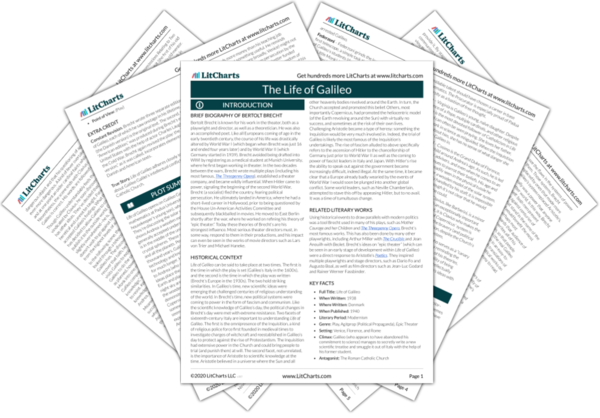Fire, flame, and burning are a constant presence within Life of Galileo. The reason is fairly obvious: Galileo fears being burned at the stake for his beliefs. Giordana Bruno (who is alluded to, but not named, in the text) had been burned at the stake fewer than ten years earlier for attempting (as Galileo does) to advance the teachings of Copernicus. Galileo reminds the Procurator of this, and in turn an old Cardinal reminds Galileo. Barberini alludes to it when he says “can one go upon hot coals, and his feet not be burned.” In that, he means that Galileo steps on dangerous ground in confronting the Church on Aristotle. Yet Brecht suggests a subtler meaning of fire in his poetic foreword to the final scene of Life of Galileo. He implores the audience to use science properly “lest it become a flame” that consumes everything. By this, Brecht suggests that Galileo’s questioning of Aristotle was both proper and productive, but that future generations need to question him as vigorously as he questioned his predecessors. Otherwise, contemporary science could become as blind and dogmatic as the authorities who threatened to burn Galileo at the stake for his beliefs.








